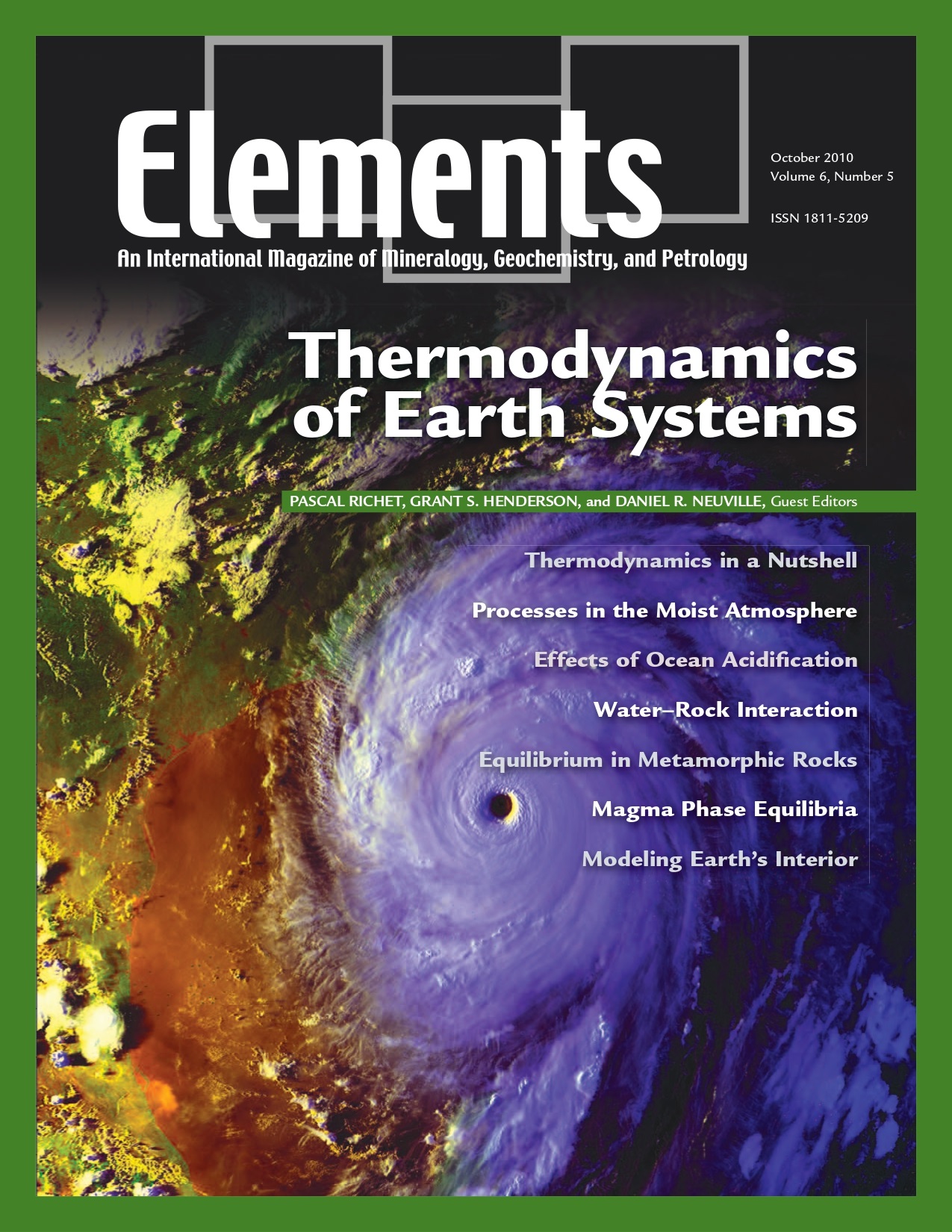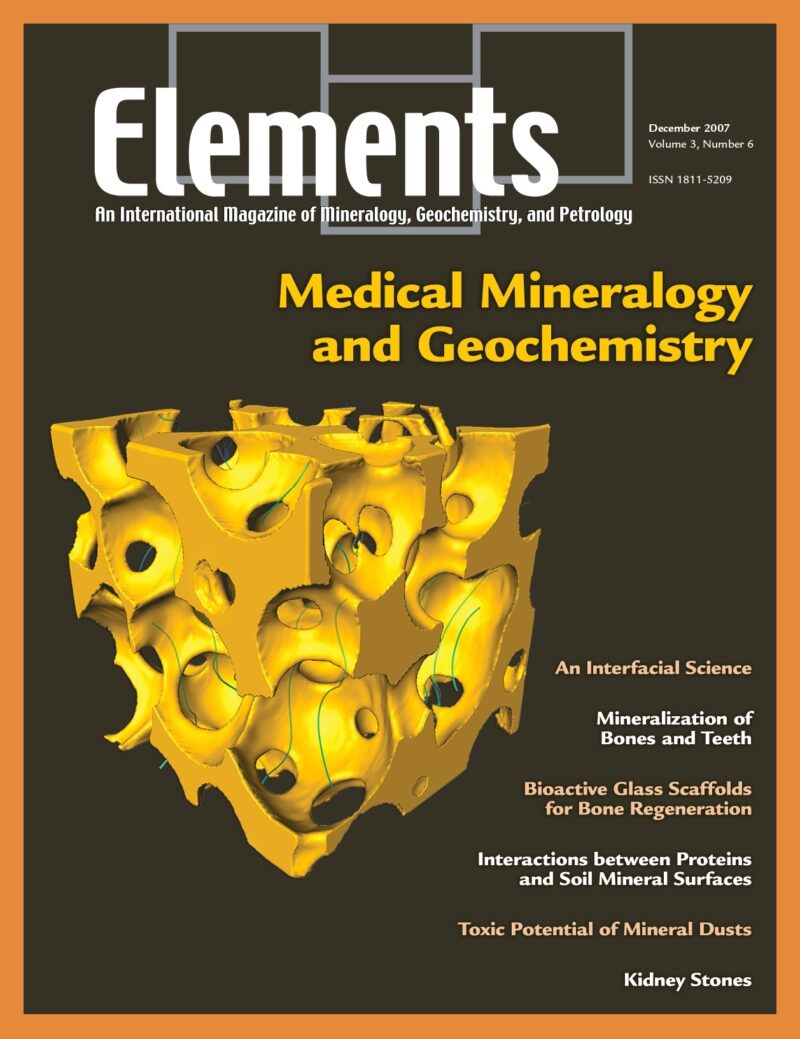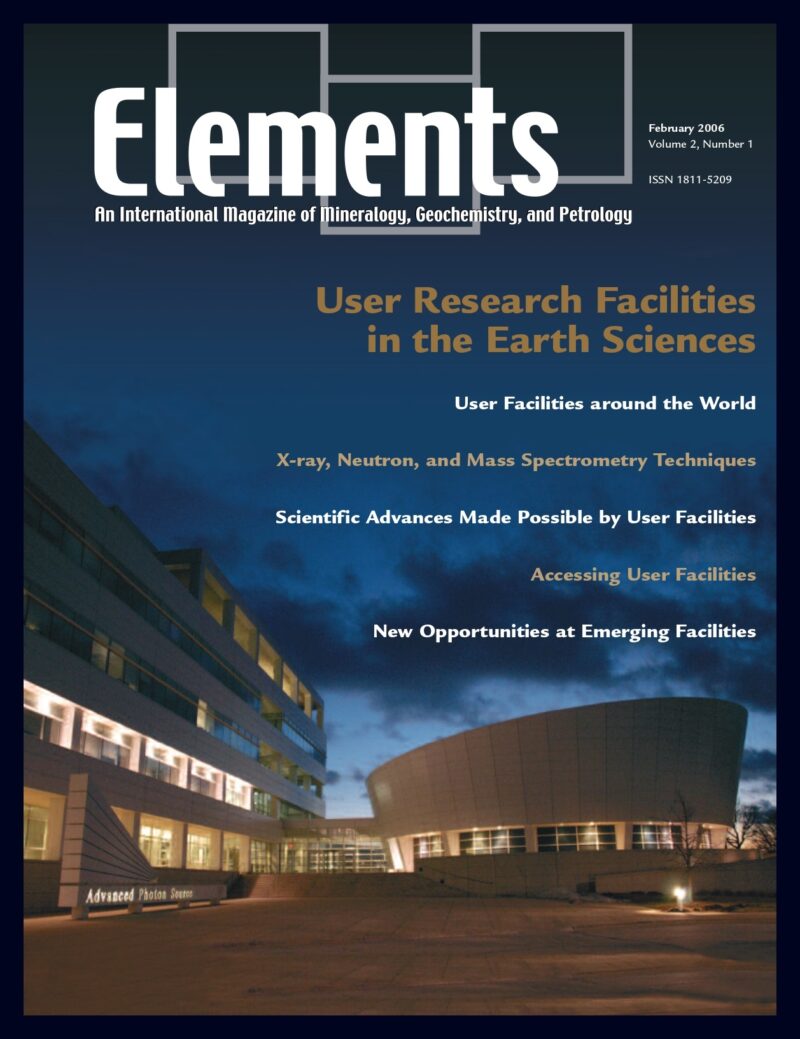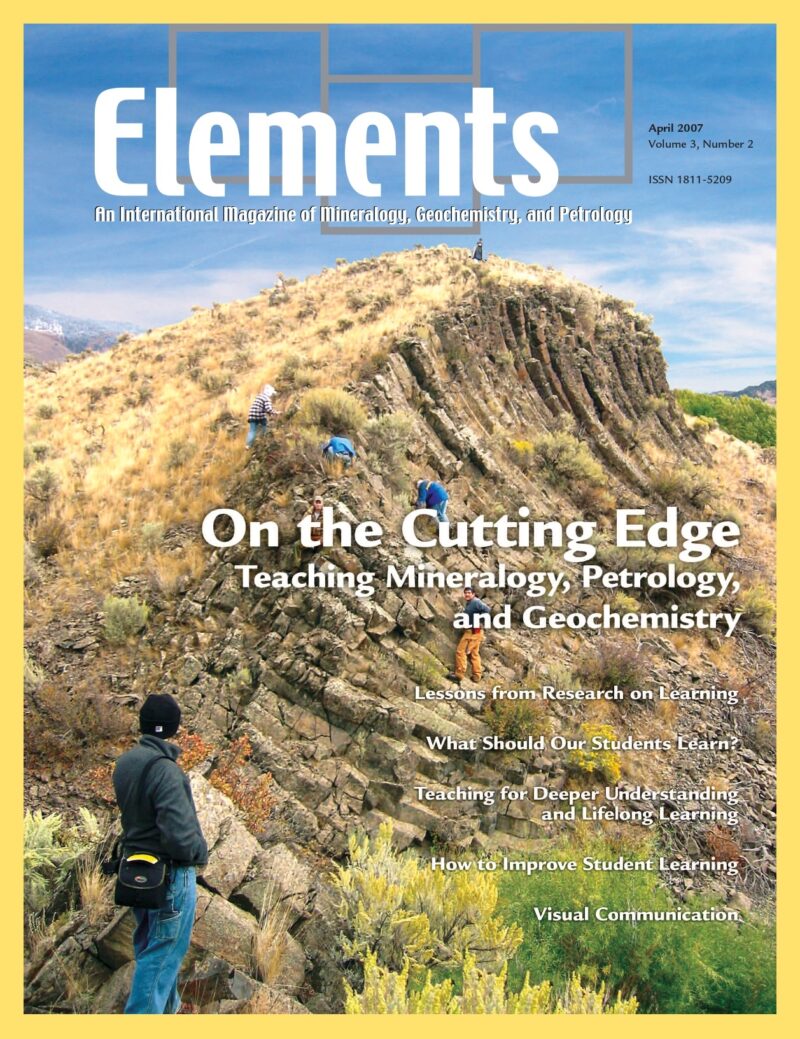
Bentonites – Versatile Clays, April 2009, Vol. 5, No. 2
June 28, 2024
Cosmochemistry, February 2011, Vol. 7, No. 1
June 28, 2024Thermodynamics Of Earth Systems, October 2010, Vol. 6, No. 5
$20.00
During the past decades, thermodynamics has become an essential tool for understanding fundamental processes that have determined the structure and evolution of our planet. From the atmosphere to the ocean and sediments, from metamorphic terranes to magmatic provinces, the lower mantle, and the core, this issue of Elements illustrates how a better understanding of the manner in which free energy depends on temperature, pressure, and chemical composition allows the Earth’s activity to be better deciphered.
Thermodynamics Of Earth Systems
October 2010, Vol. 6, No. 5
During the past decades, thermodynamics has become an essential tool for understanding fundamental processes that have determined the structure and evolution of our planet. From the atmosphere to the ocean and sediments, from metamorphic terranes to magmatic provinces, the lower mantle, and the core, this issue of Elements illustrates how a better understanding of the manner in which free energy depends on temperature, pressure, and chemical composition allows the Earth’s activity to be better deciphered. At a time when climate change has become a major concern, thermodynamic studies of the atmosphere and ocean have not only an academic interest, but also considerable practical importance.
Why You’ll Love Elements Magazine:
- Expert Contributors: Articles written by renowned researchers in the field of geoscience.
- Engaging Content: Join a community of readers who are passionate about Elements.
- Exceptional Quality: Each issue is printed on high-quality paper with stunning visuals and detailed illustrations that bring complex scientific concepts to life.
Order your copy of the October 2010 issue of Elements magazine today and learn about the thermodynamics of Earth systems.
Related products
-
Medical Mineralogy And Geochemistry, December 2007, Vol. 3, No. 6
$20.00Medical mineralogy and geochemistry is an emergent, highly interdisciplinary field concerned with both normal and pathological interactions between minerals or amorphous inorganic solids and biomolecules or cells within the human body, and the transport and fate of prions and protein toxins in the soil environment. Prior research has, appropriately, focused on the complex genetic and molecular biological aspects, but there is a growing recognition of the vital need for understanding the surface and bulk properties and reactivities, especially at the challenging nanoscale characteristic of biomacromolecules and biominerals.
-
User Research Facilities In The Earth Sciences, February 2006, Vol. 2, No. 1
$20.00Earth scientists rely on effective access to user research facilities that provide state-of-the-art analytical instrumentation. This thematic issue focuses on some of these facilities and how to use them.
-
On The Cutting Edge: Teaching Mineralogy, Petrology, And Geochemistry, April 2007, Vol. 3, No. 2
$20.00New advances in research on learning have important implications for teaching mineralogy, petrology, and geochemistry. Effective instructional practices are increasingly student centered, address diverse student learning styles, and employ a variety of active-learning strategies.




